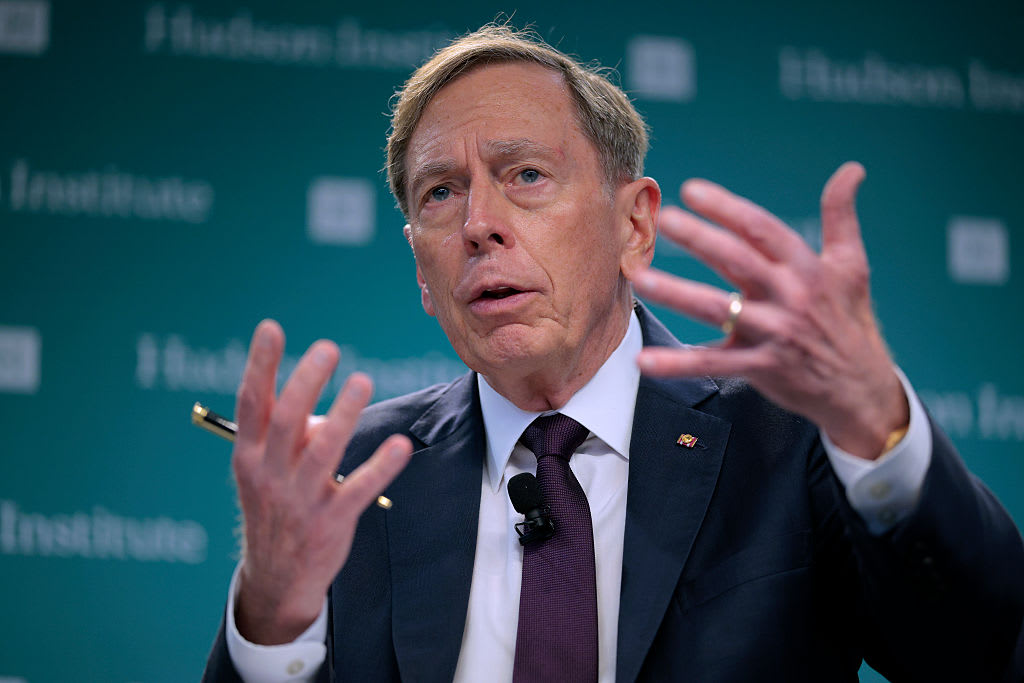Transcript: David Rubenstein on "Face the Nation," September 6, 2020
The following is a transcript of an interview with Carlyle Group co-ceo and founder David M. Rubenstein, that aired Sunday, September 6, 2020, on "Face the Nation."
JOHN DICKERSON: David, you've been a leader. You've interviewed leaders. The country is in the middle of interviewing leaders right now for the presidency. If you were holding a job interview, knowing what you know about leadership, what would you look for in candidates?
DAVID RUBENSTEIN: I'm looking for their ability to focus, their ability to communicate well, their ability to have some sense of priority of what's most important to them, their ability to inspire people, their ability to rise to the occasion. And I also think humility is important. Anybody that is really a successful leader I think has failed in life. And you have to persist after your failures. But failure gives you some humility.
JOHN DICKERSON: How do you test for humility when you're interviewing somebody and all they're doing- trying to do is tell you how great they are?
RUBENSTEIN: Well, I often look at their sense of humor. I often ask questions that are designed to elicit a little bit of laughter. And if they don't play along, I can realize that maybe they don't have a sense of humor, maybe they have no humility.
JOHN DICKERSON: How important is that if you're a leader, you have to have some human interaction ability with the people you're trying to lead?
RUBENSTEIN: The ability to lead really gets down to the ability to persuade. There are three ways to persuade people: orally, you can write well, or you lead by example. George Washington at Valley Forge in 1777, he could have stayed at the Four Seasons down the corner, but he didn't. He stayed with his troops. He led by example. You want people that actually want to lead for the right reason. Do you want to lead somebody because you want to be famous, you want to be rich or do you want to lead somebody because you're trying to do something really important? And I've observed in my book, in my interviews, the people that really achieve the greatest things, they're not worried about the material things. They're worried about getting to some end, proving their point. Bill Gates wanted to prove that software was important. Jeff Bezos wanted to prove that he could sell things over the Internet. Warren Buffett wanted to prove you could be in Omaha and be a good investor, whatever it might be.
JOHN DICKERSON: So the material things meaning accumulation of wealth, having a yacht, having a big building. Is that what you mean?
RUBENSTEIN: What you should want to do is to help other people. The greatest satisfaction, the happiest people I've seen, are people that helped other people, people that are- they could be teachers or they could be people that have given away lots of money or have invented things that have really helped other people, discovered material- medical devices that are wonderful or cures for diseases. Those are the people that are happy. The people that aren't happy are the people that don't really know why they are on the face of the earth. You should realize in the end, you're on the face of the earth for a relatively short period of time. And the greatest happiness comes about when you achieve things for other people, not for yourself.
JOHN DICKERSON: If- if knowing why you're on the face of the earth is your driving, organizing principle, is that what drives you every day when you get up in the morning? How do you work that into a kind of a daily plan if you're a leader?
RUBENSTEIN: I think people that learn how to be leaders learn how to do this during the course of their life. And when they reach the point where they really are good leaders, they reached the point where they know what they really want to do with themselves. My observation is that while there are people like Bill Clinton, who was a Rhodes scholar, became president of the United States, as a general rule, the people that are running the world were not the superstars in the first third of life. They may have burned out. They may re- realize that being a superstar in the first third wasn't what it was cracked up to be. So the people that are running the world today in the second and third third of their lives are not people that were observed at the age of 15 or 20 to be the superstars. And so there's hope for all of us who didn't succeed in the early part that you can rise up and- and do something maybe significant with your life later on.
JOHN DICKEROSN: I have a lot of personal experience with failure, but teach me to fail.
RUBENSTEIN: Well, the truth is, with failure, you have to observe what you did wrong and why it didn't work out. And if you say, you know what, this isn't good, I'm not really talented. I'm going to just go back and sit in my office or sit in my house and not do anything, then you won't be a leader. But if you say I learned something from this, I know how to overcome this, I can do this better in the future.
JOHN DICKERSON: You said humility comes from having failed and learning to overcome them, so in that sense, it's kind of a byproduct. How does humility help if you're, if you're a leader perspectively?
RUBENSTEIN: Well, if you're trying to become a leader, I think you have to get other people to follow you. In other words, you can't say I'm going to be a leader and nobody follows you. You have to have people follow you. How do you get people to follow you? Well, you have to give them a certain sense that you have a way of going somewhere, that you're going to take them on a vision and on a voyage that's going to be useful for them as well as for you. And to do that, I think you have to be simpatico with them. You have to say, look, this is good for both of us. It's not just good for me because I'll be more famous. You have to say we're going to do this together. And that's how you really make people follow you.
JOHN DICKERSON: Relentlessness, how important is that?
RUBENSTEIN: I think it's indispensable. So relentlessness, another word that's often used in that way is resilience. You have to be resilient and you have to take this, the punching you're going to get in life and come back. You all, when we were growing up, we all had these, like, the little punching bags. You punch it and it comes right back at you. But that's what you have to do. People are going to punch you all the time. You have to come back. And it's like when you're a little kid, you know, people who are bullies, they'll punch you and you have to come back to them. And in the end, you know, in the adult bullying kind of thing, it's the same kind of thing. People say he's a terrible person. He's- he's incompetent. He's not smart. It's a terrible idea. Well, if you take this personally and you go home and call your mother and say, look, people think I'm terrible, you're not probably going to be a great leader. What you have to do is be resilient about it and come back and remember, nobody can be liked 100 percent by everybody. There's always going to be people that don't like you. And so if you can't stand the heat, as they say, you've got to get out of the kitchen.
JOHN DICKERSON: How is presidential leadership different than in other sectors?
RUBENSTEIN: There are three ways you could persuade people that a president can, but other people can as well. You learn how to write well. So let's suppose you are a very good writer, and you're Thomas Jefferson, and you wrote the Declaration Independence that could persuade people. Or you're a very good orator, you're John Kennedy, and you give the inaugural address in 1961. But leading by example is the most effective way to do it, I think. And I think many presidents who have been successful that have led by example, and I think Abraham Lincoln is a good example. He showed people his humility, that he was going to bring his team of rivals in with him, that he didn't brag about what he was doing and that he recognized he had lots of failings. He was the kind of person who, you know, led by example. When people were in his presence, they would- they would realize the presence of a great man.
JOHN DICKERSON: Is it important for presidents to take responsibility as- as fulfilling that example function that you talked about?
RUBENSTEIN: Well, as a general rule of thumb, I think it's a good idea for anybody to take responsibility, because if you say in any case, well, it wasn't my fault or I didn't do anything to deserved that bad thing happening, you know, again people hear you and they say, well, you know, who was responsible? You were in charge. And I don't mean a president of the United States, but any position. You should take responsibility and say, I'm sorry, I made a mistake. People will admire you more if you say you take responsibility.
JOHN DICKERSON: David Rubenstein, the book is "How to Lead." Thank you so much.
RUBENSTEIN: My pleasure. Thank you very much.



